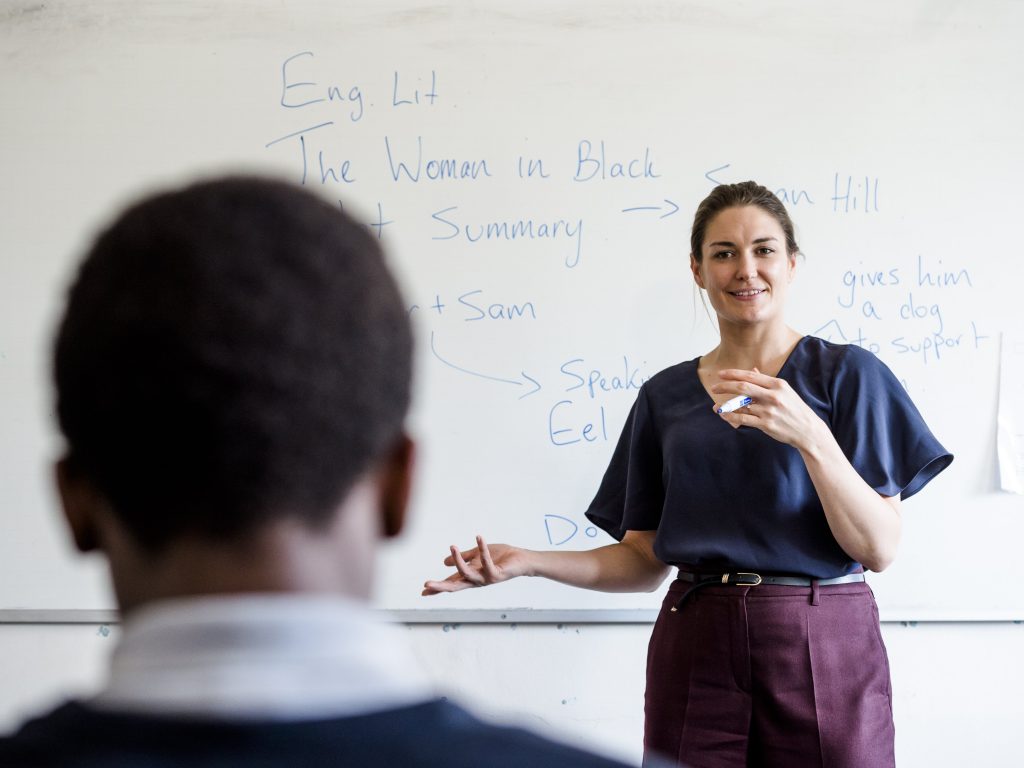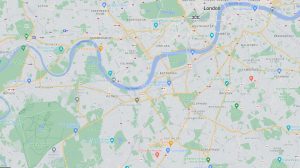Teachers in the English department summarise their intentions in teaching English as to ‘inspire students to listen to the world and to find their own voice.’ More specifically, we aim:
- To provide a language-rich environment that promotes a culture of reading and writing
- To support all students to read and write confidently and fluently
- To foster in pupils the confidence, desire and ability to express their views and opinions both orally and in writing
As well as encouraging enjoyment of the subject, we intend to equip students with the confidence, necessary skills and conceptual understanding to be highly successful students of English.
The strategies we use to teach English are varied and evolve with our pupils. These strategies may include:
- Creative play or design work to encourage risk taking
- Group, paired or shared reading to develop reading accuracy and fluency
- Shared construction of texts to model writing techniques
- Deconstruction of modelled texts to identify conventions
- Using writing frames to structure responses to topics
- Role play and drama techniques used to understand characters and themes
- Over learning to ensure thorough knowledge of topics
- Group work or working in teams to encourage lateral thinking
- Using the stimulus for writing to develop creativity
- Incorporation of technology such as ICT, internet or apps
- Use of moving and still images to storyboard ideas for narratives
- Use of voice activated software to support the writing process.
KS3 and KS4
Our Key Stage 3 curriculum aims to be rich, diverse and challenging, while offering all students access to it. At Key Stage 4, students prepare for GCSE examinations in English Language, the content for which is taught through Years 10 and 11 with units of work on each of the core key skills needed for the Language GCSE controlled exam and creative writing coursework.
We recognise the importance of discussion in the classroom and aim to promote student talk and the expression of ideas in lessons. We aim not to reduce teaching writing to coded acronyms, but rather encourage students to express themselves confidently and to trust that they have something important to say about literature and language to combat the anxiety of not knowing what to say or in what form to say it and the habit of wanting to know ‘the answer’.
Reading and writing skills are returned to and refined over Key Stages 4. We encourage flexible thinking and treat English as a subject discipline with skills and concepts that can be taught through studying literature and language, rather than as a bank of knowledge that should be memorised. Assessments are essential to how we monitor students’ understanding of language and literature and track their continued progress. We make adaptations to our units of work depending on findings informed by assessments to make sure all students have understood content and are developing and honing their skills in English.
Many courses offered by colleges and sixth forms require English GCSE as part of their entry requirements. We understand the need to help every child succeed. We offer each pupil the opportunity to develop their skills in English in a secure and fun environment that caters to the individual needs of our pupils. A solid grounding in English will allow our pupils the opportunity to move on from Burlington House School with confidence in their skills in reading, writing and speaking in a variety of forms.
Parents and carers can help children progress in English by encouraging them to read for pleasure every day and by discussing their reading with them.
Parent Portal
Parents can find specific curriculum information in their child’s termly ICM reports. These can be accessed via the Parent Portal: https://schoolbase.online



